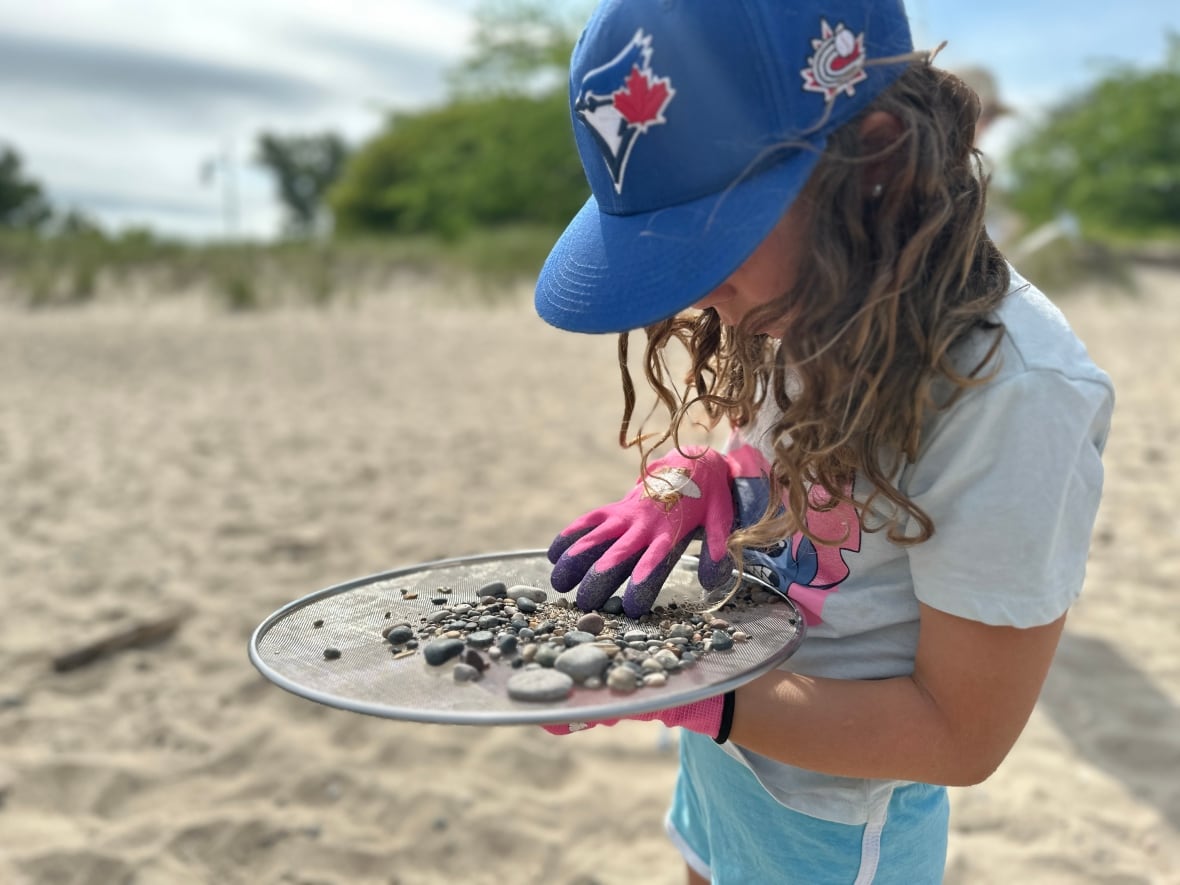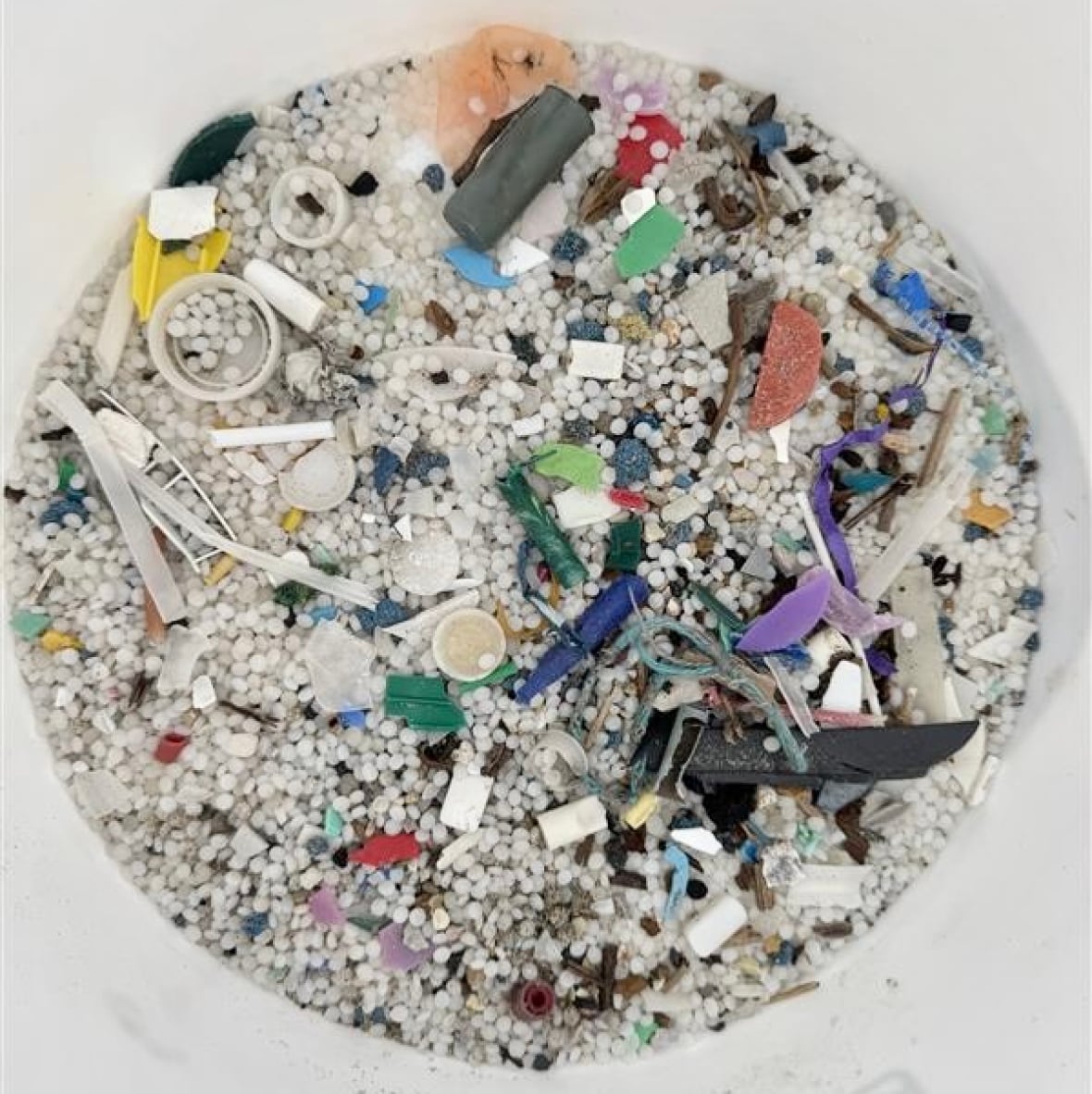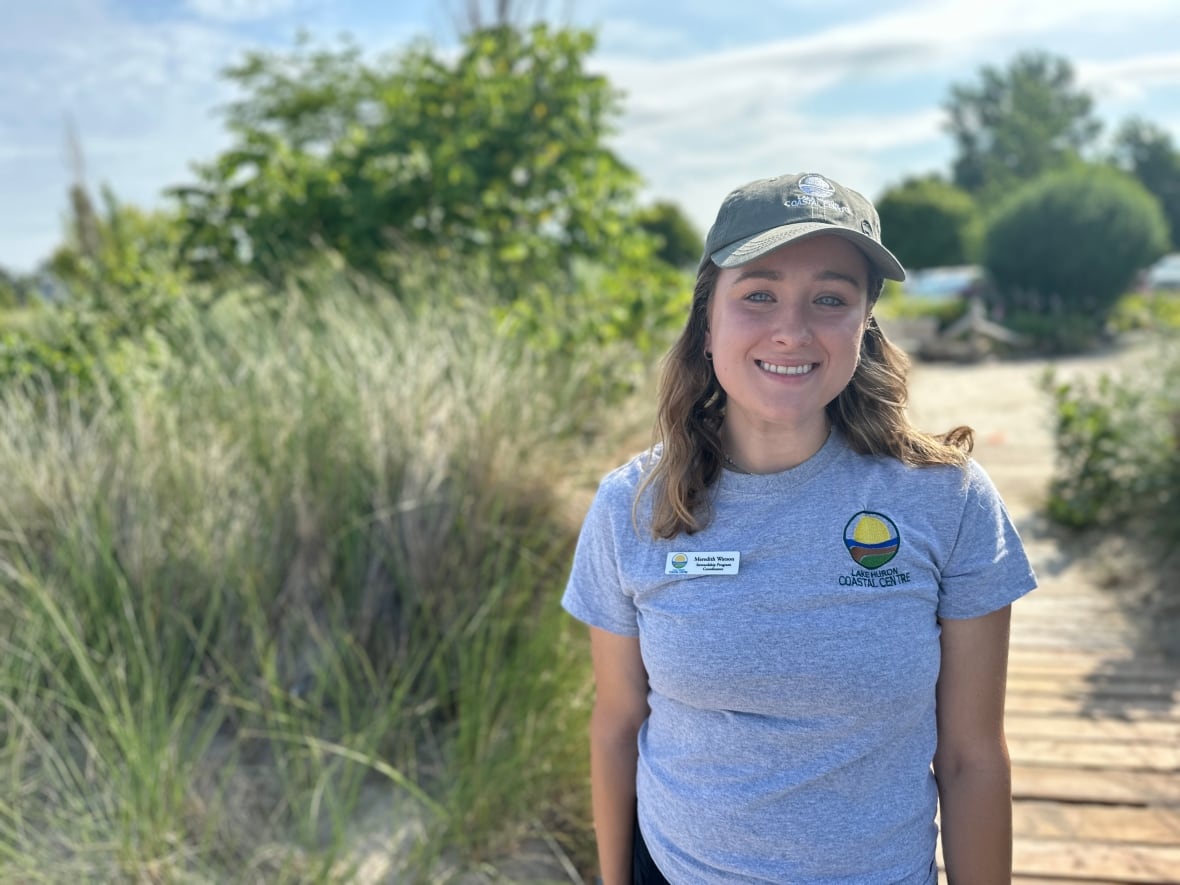Microplastics are polluting our beaches and these volunteers are cleaning them up

Along the shore of Lake Huron on a sunny Saturday morning in July, Amanda Saxton and her children carefully sift through the sand.
They're on a hunt — but not for treasure. Isla, 9, and Theo, 8, and their mom are busy scouring for microplastics hidden among small pebbles and grains of sand.
"They're not like usual colours that you would find at the beach. They're blue, sometimes red," said Isla.
They are among nearly 70 volunteers out at Station Beach in Kincardine, Ont., with buckets, sieves and trash pickers in hand, part of a beach clean-up organized by the Lake Huron Coastal Centre on July 19.
The goal is to remove as much plastic pollution from the shore as they can — from cigarette butts to food wrappers to balloon bits. This time, volunteer efforts total 75 pounds of garbage, largely made up of small pieces of plastic, including 2,119 cigarette butts.

Amanda, a teacher and member of the Kincardine Environmental Action Network (KEAN), has been picking up garbage along rivers and beaches in Kincardine for years.
"I've actually noticed a reduction in trash overall, which is really great. But the microplastic piece is the concerning part, because they're just so hard to find," she said.
LISTEN: Meet the volunteers cleaning up Lake Huron beaches
"There are pieces of plastic that when they go into the water and beat upon the shore, then they get cut into smaller and smaller pieces, and they become microplastics ... but they started out as something much larger," she explained to her children.

Microplastics — particles under five millimetres in length — can be from manufacturing, but many of them also come from degrading plastic items such as packaging and synthetic fabrics or litter left on the beach. If they're in the environment, they can also end up in almost every level of the food chain.
'Challenging to remove'Among the pollutants hidden in the sandy shore, tiny plastic pellets known as nurdles are plentiful at Station Beach.
"These are pre-production plastic pellets, which are used to form larger types of plastic, so we find a lot over near the pier and all across Station Beach," said Meredith Watson, stewardship program co-ordinator with the Lake Huron Coastal Centre.

They can be challenging to remove, said Watson. Tiny pieces of plastic take a lot of time to find.
"There's really no other situation where tiny pieces of plastic are being picked up other than a beach clean-up like this," she said. "The time investment by people to carefully go across the beach and pick up plastic and garbage of all sizes is huge."
If this garbage didn't get picked up, it would likely end up in the lake, and then be impossible to clean, she said.
Even small amounts of garbage add up, said Watson, and people should be more intentional about making sure their garbage is properly disposed of.
At a recent clean-up in Port Elgin, the group found a dead bird with a plastic ring around its neck.
"[It] was really sad to see, and really, really impactful to see why we're doing this. It does directly impact the wildlife around as well."
Don't leave garbage behind at the beachThe problem of both industrial waste and litter from beach-goers is a problem cottager Catherine Marshall knows all too well.
"It's a huge problem," said Marshall, who has a cottage near Bruce Beach.
"Fortunately, there's a lot of cottagers around this area who really care and are very diligent in doing clean-up," she said.
Tourists aren't always as diligent about picking up after themselves, and it affects the marine life, Marshall said.
"If you see garbage on the beach, pick it up," said Watson. "It just makes the beach a better place for the community. We all care about the beauty of the beach here in Kincardine and along the Lake Huron coast, and it makes it a better place for everyone."
Lake Huron Coastal Centre is based in Goderich, and organizing beach clean-ups in Kettle Point on August 1, Bayfield on August 9, Grand Bend on August 16 and Sarnia on September 20.
cbc.ca




